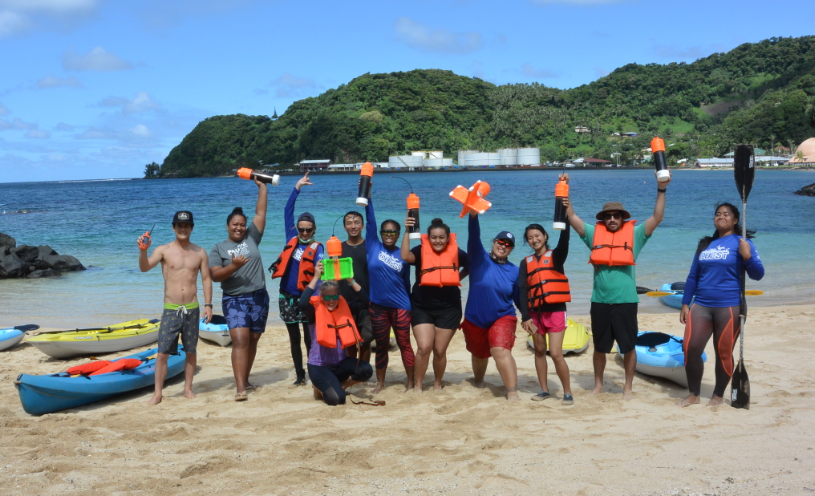Drifters Workshop! 2019 MET grant
Jameson and Alex were awarded a Marine Education Training grant from NOAA Fisheries in FY18. The grant supported a workshop and student researchers to follow up using the methods they learned in the workshop to pursue their own projects. In 2019 Jameson and Alex traveled to American Samoa to host a workshop with students from the ASCC Marine Science Program and staff at the Department of Marine and Wildlife Resources (DMWR) and Coral Reef Advisory Group (CRAG).
The workshop focused on how to design, construct, and uuse GPS-enabled drifters to map nearshore ocean currents, and then analyse and present the drifter tracks using GIS software. Workshop attendees learned vital skills for marine science research including GIS, kayaking, field safety, fieldwork planning, GPS navigation, knots, and the how to apply the knowledge gained towards improving coastal zone management.
Why drifters? Drifters are a relatively cheap and easy way to collect data on ocean currents over the nearshore coral reef. Information on current directions and speed under various wind and wave conditions provides vital context to the potential impacts of land based sources of pollution (LBSP) like sediment and nutrients. The ocean currents control where the pollutants go when they enter the ocean and can either increase or reduce their impact by controlling the residence time of the pollutants.
These research methods can be carried out with materials fond on remote islands like American Samoa (mostly PVC pipe and fittings) and cheap, commercially available GPS units as opposed to more expensive and difficult methods like using Acoustic Doppler Current Profilers (ADCPs). This fun and relatively simple method is a good project for new marine science students, teaching them practical skills in the field and with GIS mapping software.
QUEST Monitoring Workshop
Jameson led QUEST for 3 years as the Marine Science Coordinator for ASCC. Check out the video!
